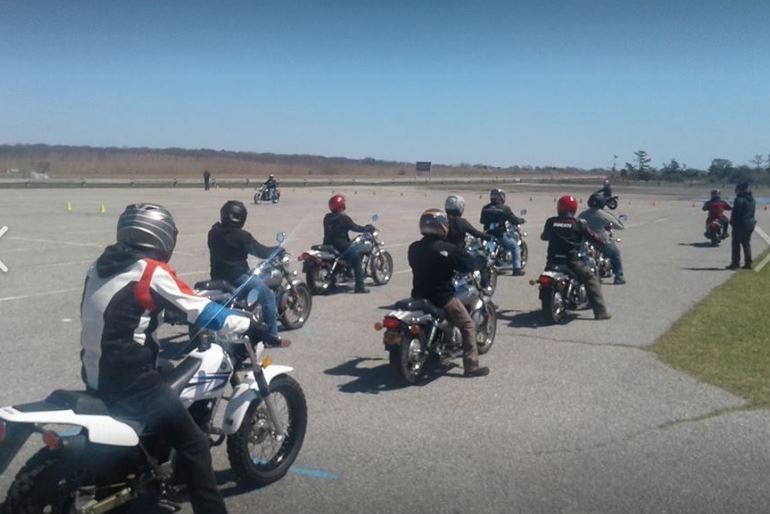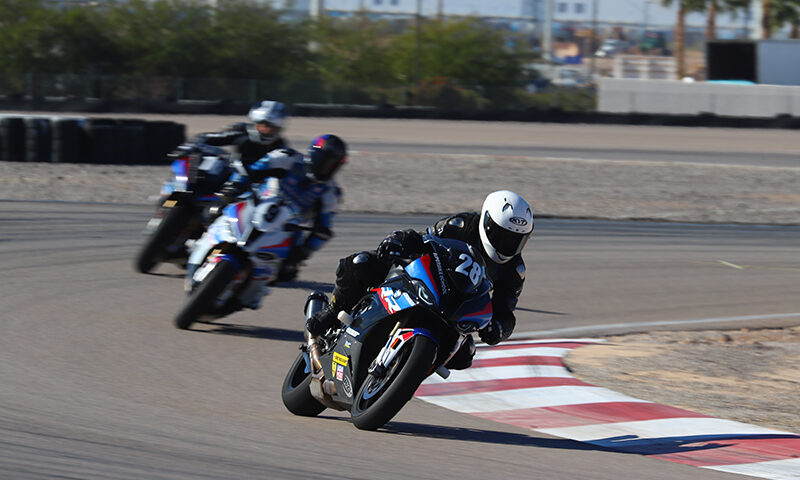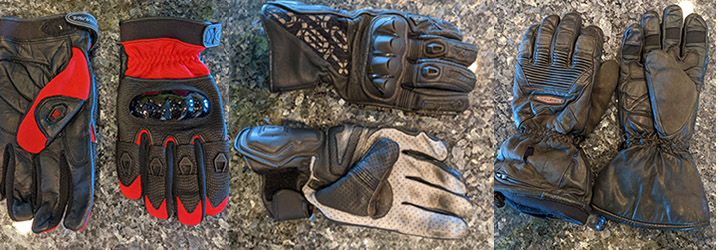Mental Obstacles and Other Impediments
by George Tranos
There is a right way, a wrong way and your own way to do something. Many times, people think they know better or find that conventional wisdom on how something is done is outdated or just doesn’t apply to them. It doesn’t matter what the subject is – plumbing, wood working, motorcycle riding or even just walking – there are those that push the envelope and think they are unique.
While it’s true that each of us is an individual with remarkable qualities and tendencies, learning something new typically can be done quicker and more completely using common principles and techniques. This is why motorcycle riding courses have a set curriculum with specific exercises. These exercises are meant to teach motor skills and instill good habits, actions that are required to obtain competency to ride a motorcycle. Practicing the right thing helps a person become more proficient.
There are things that interfere with this learning process. Some of them are physical – things like lack of coordination and balance. Others are mental such as a predisposed attitude or simple fear. Some students come to the course with previous experience. That experience, if it resulted in a crash or near-crash, can negatively affect a person. We call these mental obstacles and sometimes they are the hardest thing to overcome.
Sometimes people come to a riding course who previously had tried to ride either on their own or with a well-meaning friend. Some of them had something bad happen during this initial session. Many try to ride on a motorcycle which is too large, too powerful or just ill-suited to learning. When this happens they panic and the resulting action can be severe. Sometimes they hurt themselves and/or damage (or in a worst-case scenario total) the motorcycle.
When they subsequently attend a class, they are spooked before they even get started! This fear can cause them to not position their hands properly, with many wanting to ride with the fingers on the front brake at all times. Needless to say, this causes many unwanted actions. Since they don’t have their hands fully on the throttle, they have problems with throttle control. They tend to be jerky on the throttle, speeding up and slowing down many times during one straight line ride. They may be afraid to go too fast since the first time they tried that on their own, it resulted in their crash. Since they are constantly covering the front brake, they may apply it during a turn or too quickly, causing the motorcycle to tilt or sometimes fall.
All of these bad habits and harsh responses are caused by fear – a fear that was typically instilled by trying to ride without the proper foundation. Fear is a difficult emotion to control. To overcome this obstacle, it’s important to wipe the slate clean and start from scratch. The prospective rider must relearn proper hand position and movement. It’s much harder to unlearn bad habits than to impart new ones! That’s why experienced riders can sometime have the hardest time changing as they have repeated the same, improper actions over a long period of time, sometimes years! Their hands and feet move automatically.
This automated motor control is a good thing if practicing the right movement as this reinforces a good habit. But it can be a bad thing if reinforcing a bad habit. That’s where a ‘back to basics’ approach can be effective. Experienced riders have different mental obstacles to overcome than beginners. They have different fears than the new rider has. They may worry about dropping their motorcycle during slow speed maneuvers or running wide in a high speed turn.
This can be combined with an attitude where they tell themselves that they don’t have anything left to learn. This complacency and overconfidence may sometimes come by simple good luck. A rider may think that riding for 10 years without a crash means that they’re a good rider when in reality, they may just be a lucky rider!
Determination, continual practice and lifelong learning can help overcome the mental obstacles that can get in the way of improvement. It can be fun and fulfilling to experience a breakthrough in your riding. You can do it! Learning the right way can make it easier – this is where a well designed riding course run by professional instructors can help.





